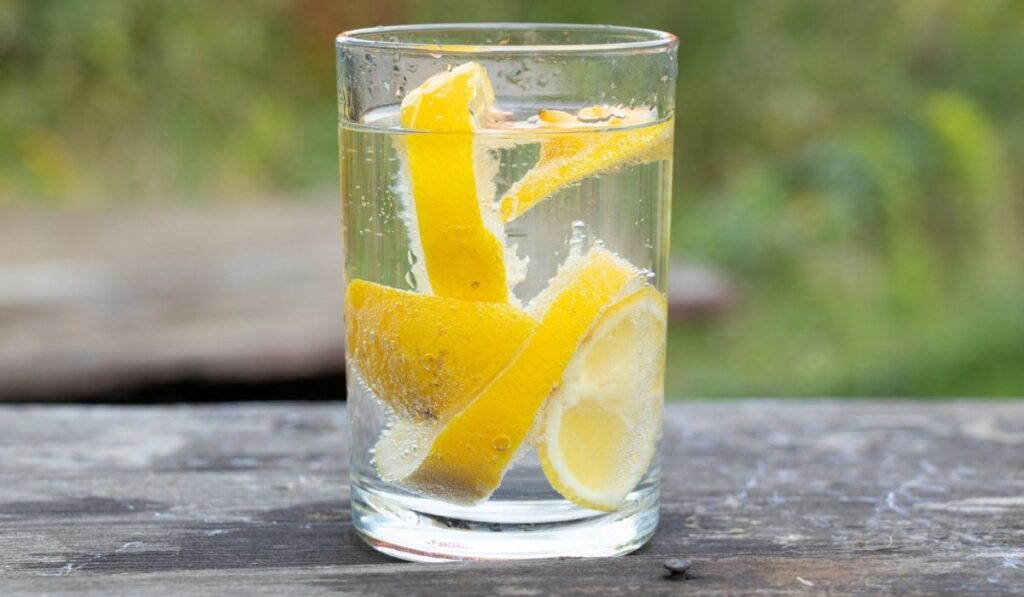As natural water has come to feel more and more humdrum over time, people have started drinking carbonated water instead. Carbonated water is a good alternative to soda and other sugary soft drinks, but is it bad for your teeth?
Carbonated water is slightly more acidic than regular water, and over time, it can pose a serious risk of tooth decay if you drink too much of it. Exposing your mouth to acidic drinks can also erode your enamel. However, sugar-free carbonated water is still better for your oral health than soda.
But let’s not focus on the bad side. Carbonated water is bad for your teeth, but if you compare it with other sugary drinks, like soft drinks, it’s still a great alternative. Carbonated water can work as a good substitute for other more damaging drinks. If you drink it in moderation, it is a great replacement for soft drinks and it’ll help reduce the amount of sugar you consume.
Is Carbonated Water Bad for your Teeth?

Relatively little research has been done on this subject, as carbonated and sparkling water are still new to the world. However, all the studies conducted so far have proved that carbonated water is slightly more acidic than tap water and can easily put your teeth at risk of decaying.
According to a recent study, mineral water is 100 times less damaging for the teeth than any other type of watery drink. Carbonated beverages have a huge possibility of destroying your tooth enamel, but only if they contain sugar.
Our tooth enamel is composed of hydroxyapatite, a substance that slowly dissolves in regular water. The process of this dissolution creates calcium, phosphate, and hydroxyl ions.
The absence of those three substances from our mouth can lead to the release of your enamel to replace all the missing substances from our mouth. That process is known as demineralization of the teeth.
However, it’s worth mentioning that the extensive erosion of the enamel can lead to severe tooth problems and bad oral hygiene.
How To Tell If Your Enamel Is Damaged
If you are concerned about your enamel but you haven’t gone to the doctor yet, there are some signs that can help you identify if your enamel is eroded.
Some of the most common signs include:
- Sensitivity: Your enamel might be eroding if consuming hot or cold foods causes pain or a weird discomfort on your teeth, or if you feel sensitivity or discomfort on your gums.
- Discoloration: Discoloration is something that you can easily notice in the mirror. If your teeth are yellow, brown, or generally darker than they used to be, that’s a clear sign of enamel erosion.
- Other more general signs: Any unusual development on your teeth, like cracks, chips, or any change in their shape.
Is Unflavored Sparkling Water Bad For Teeth?
Another primary question is what happens if you drink carbonated or sparkling water with no extra flavors or additives? It may be more acidic, but is it going to damage your enamel?
Sparkling water, in general, is not harmful to your teeth. According to a recent study, both tap water and sparkling water have almost the same effects on teeth’ enamel, and that’s minimal.
Maybe sparkling water contains more acid than ordinary mineral water, but it feels and reacts the same on teeth.
All the above, though, apply only if we are talking about plain sparkling water. When sugar is added to it, it stops being simple sparkling water and turns into a sugar-sweetened beverage. Sugar is quite well known for developing cavities on teeth.
Sugar is a substance that reacts with the bacteria within the plaque and leads to the production of a high number of acids. The high levels of acid can slowly create cavities or decay enamel.
However, it’s not only about sugar, but adding any type of flavor to sparkling water can make it more acidic, and that by itself increases the risk of enamel erosion.
Does Drinking Carbonated Water Over A Long Period Of Time Have Negative Affects On Teeth?

As we mentioned above, carbonated water is more acidic than mineral water, and that leads to the conclusion that it is possible to have negative side effects for teeth over a long period of time. Consuming acidic drinks οn a daily basis will definitely affect your enamel at some point.
Unsweetened carbonated water has a pH of about 3 or 4, which makes it a lot more acidic than tap water, which has a pH of 7. Every time you drink a carbonated drink, you’re giving your teeth double the amount of acid in tap water.
Of course, it’s still a safer option than drinking soda or any other detrimental option. Having carbonated water every once in a while won’t harm your teeth, but if you drink a lot over an extended period of time, you’ll be exposing your teeth to a lot of acid.
To prevent erosion, make sure to drink plenty of mineral water too. Drinking some tap water can neutralize the acid in your mouth and reintroduce the fluoride that is needed in order to repair your enamel.
Moreover, If you’re concerned about dental health, try drinking sparkling water with a meal or rinsing your mouth with plain water after drinking it.
Last but not least, a good option for avoiding the erosion of your enamel is drinking your sparkling or carbonated drink quickly and not in sips. Slowly sipping will keep the acid in your mouth longer, which contributes to tooth decay.
Of course, this advice only applies to sugar-free carbonated water, since sugar can destroy your teeth easily without the help of any other substance.
Should You Brush Your Teeth After Drinking Carbonated Water?
If you want to protect your teeth and your general oral health, you should not brush your teeth immediately after drinking a carbonated drink. The friction involved in brushing your teeth directly after will dissolve them.
The acid itself can be harmful to your teeth, so you don’t want to cause more damage. Wait for 30 minutes, then brush your teeth gently.
By waiting before brushing, you’ll decrease the damage that brushing causes and also keep your mouth clean of any unwanted bacteria and ions.
Carbonated water is mildly acidic. It doesn’t stay on the teeth, and the chances of it causing cavities are minimal. You should worry more about sweetened fruity drinks or drinks containing phosphoric acid since both of them can easily cause a lot more damage to your teeth and overall health.


